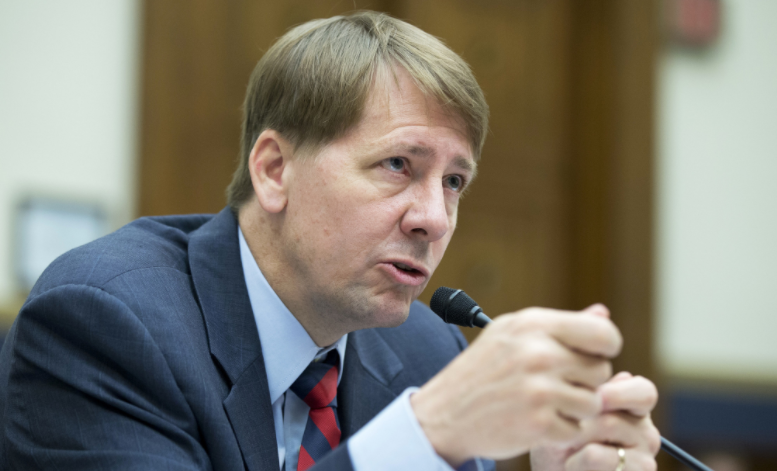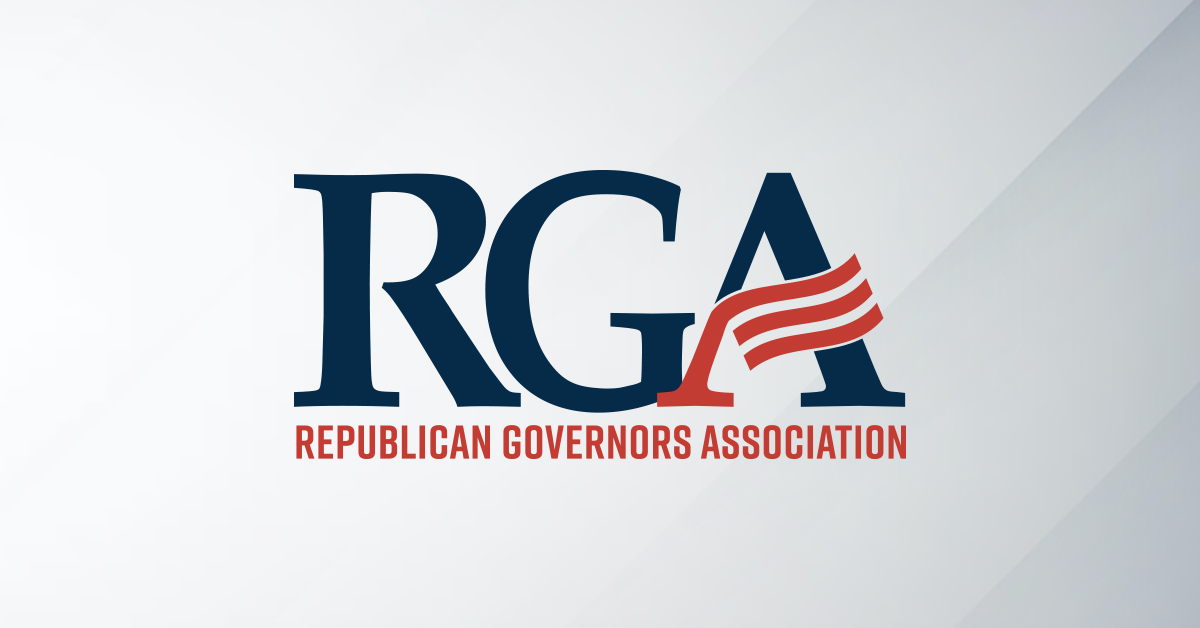
Former Consumer Financial Protection Bureau Director Richard Cordray announced his candidacy for Ohio’s highest office today, pledging to bring his Washington-based agenda to the Buckeye State. But after spending half a decade defining himself as Washington D.C.’s most power-hungry and least accountable bureaucrat, he’s proved that he can’t be trusted to lead Ohio.
With Cordray as its Director, the CFPB developed a disturbing “tendency to overreach” against business groups as well as an alarming resistance to any attempts to ensure transparency and regulate its activities by Congress. Cordray and his subordinates consistently refused to cooperate with congressional oversight bodies, causing the Wall Street Journal to label his CFPB the “most powerful, least accountable agency in U.S. history.” The activities of Cordray’s CFPB even drew legal challenges, with courts ruling that the very structure of the CFPB is unconstitutional.
Cordray has also been accused of politicizing the CFPB, with the agency drawing accusations that it was “consumed by politics” under his watch. Earlier this year the CFPB was caught funneling tens of millions of dollars in taxpayer-funded federal contracts to a Democrat campaign firm, appearing to have given them the contract for their political affiliation.
And when Cordray finally decided to hastily resign from the CFPB last month to pursue his next ambition, the power-hungry bureaucrat chose to throw the agency into chaos by appointing his Chief-of-Staff, Leandra English, as Deputy Director in an attempt to undermine the authority of Mick Mulvaney, who was appointed by the President to lead the CFPB. Though the move ended in failure when a federal judge ruled against English’s attempt to remove Mulvaney from his position, Cordray’s eleventh hour attempt to play politics with the CFPB was blasted by his former staff, as he was accused of trying to create “as much chaos and conflict as he could” on his way out the door.
For the last five years, Richard Cordray has led an out-of-control CFPB that has been constantly accused of bureaucratic overreach, resistance to transparency, and partisan political activity. Cordray’s record proves that he’s unfit to serve as Ohio’s next governor.
BACKGROUND: Washington D.C.’s Most Power-Hungry Bureaucrat
Washington D.C. circuit court: “Indeed, other than the President, the Director of the CFPB is the single most powerful official in the entire United States Government.” “Because the Director alone heads the agency without Presidential supervision, and in light of the CFPB’s broad authority over the U.S. economy, the Director enjoys significantly more unilateral power than any single member of any other independent agency. By ‘unilateral power,’ we mean power that is not checked by the President or by other colleagues. Indeed, other than the President, the Director of the CFPB is the single most powerful official in the entire United States Government, at least when measured in terms of unilateral power. That is not an overstatement. What about the Speaker of the House, you might ask? The Speaker can pass legislation only if 218 Members agree. The Senate Majority Leader? The Leader needs 60 Senators to invoke cloture, and needs a majority of Senators (usually 51 Senators or 50 plus the Vice President) to approve a law or nomination. The Chief Justice? The Chief Justice must obtain four other Justices’ votes for his or her position to prevail. The Chair of the Federal Reserve? The Chair needs the approval of a majority of the Federal Reserve Board. The Secretary of Defense? The Secretary is supervised and directed by the President. On any decision, the Secretary must do as the President says. So too with the Secretary of State, and the Secretary of the Treasury, and the Attorney General.” (Opinion, PHH Corporation, et al., v. Consumer Financial Protection Bureau, United States Court of Appeals, District of Columbia Circuit, p. 25, decided Oct. 11, 2016)
Business groups oppose the bureau for what they call a tendency to overreach. “For their part, business groups oppose the bureau for what they call a tendency to overreach. Among measures they have criticized is a bureau ban on mandatory arbitration, a proposed rule that could force sweeping change to credit cards, cellphones, mortgages, and student loans. They also point to the bureau’s enforcement of fair lending laws, particularly among car and mortgage lenders.” (Lorraine Woellert and Josh Dawsey, “Trump’s allies building case to oust consumer protection head,” Politico, Feb. 26, 2017)
Republicans in the U.S. House of Representatives are pushing to hold Consumer Financial Protection Bureau Director Richard Cordray in contempt of Congress for refusing to respond sufficiently to congressional subpoenas.“Republicans in the U.S. House of Representatives are pushing to hold Consumer Financial Protection bureau Director Richard Cordray in contempt of Congress for refusing to respond sufficiently to congressional subpoenas… A report released on Friday by Republican staff of the House Financial Services Committee argued there was ‘ample evidence’ to hold Cordray in contempt because of his alleged failure to full comply with subpoena requests. Republicans on the panel have been fiercely critical of the CFPB’s regulatory work.” (Pete Schroeder, “House Republicans push for contempt charges against CFPB director,” Reuters, Aug. 4, 2017)
House Financial Services Committee spokesman, Jeff Emerson, said “The CFPB generally doesn’t want to produce anything that we don’t already have – most notably their internal records. Does Director Cordray have something to hide?” “Jeff Emerson, a committee spokesman, said the CFPB has not given the committee any internal agency documents and instead has provided documents already available from either Wells Fargo or other regulatory agencies… ‘The CFPB generally doesn’t want to produce anything that we don’t already have – most notably their internal records,’ Emerson said. “Does Director Cordray have something to hide?” (James Rufus Koren, “House Republicans threaten consumer watchdog with contempt of Congress,” Los Angeles Times, June 8, 2017)
In July 2017, Congressman Jeb Hensarling requested a federal investigation into whether Consumer Financial Protection Bureau Director Richard Cordray was illegally working to run for Ohio governor. “A Texas congressman has requested a federal investigation into whether Consumer Financial Protection Bureau Director Richard Cordray is illegally working to run for Ohio governor… House Financial Services Committee Chair Jeb Hensarling, a longtime GOP critic of Cordray, asked U.S. Acting Special Counsel Adam Miles on Friday to review whether Cordray violated the Hatch Act, which prohibits executive-branch employees from engaging in political activity.” ( Jeremy Pelzer, “Congressman seeks investigation into whether Richard Cordray violated political activity ban,” Cleveland Plain Dealer, July 31, 2017)
PHH Corporation brought a legal challenge to the CFPB’s structure, arguing in part that the CFPB Chairman, Richard Cordray, wields vast but unchecked powers. “A lawsuit challenging the constitutionality of the Consumer Financial Protection Bureau (CFPB) will be heard in federal court this Wednesday. Mortgage lender PHH Corp. brought the legal challenge to the CFPB’s structure following a 2014 enforcement proceeding against PHH in which the CFPB imposed a $109 million in fines against the company. PHH argues, in part, that the CFPB chairman, Richard Cordray, wields vast but unchecked
powers. CEI has a separate, pending lawsuit challenging the constitutionality of the CFPB, State National Bank of Big Spring v. CFPB.” (Press Release, “CEI General Counsel Says Time to Invalidate ‘Fundamentally Unconstitutional’ CFPB,” Competitive Enterprise Institute, May 23, 2017)
“Government overreach is everywhere in Washington, but the CFPB is one of a kind in the respect. It was designed to be free from political influence, but it seems to have become consumed by politics.” “Government overreach is everywhere in Washington, but the CFPB is one of a kind in this respect. It was designed to be free from political influence, but it seems to have become consumed by politics… It’s time for the CFPB to be reined in. It’s time to rethink and restructure the CFPB as a whole. It’s time for Congress and the Trump Administration to ensure that future directors can no longer use this agency for their personal political agenda.” (Ed D’Alessio, “Rein in the CFPB, because ‘independent’ shouldn’t mean ‘unaccountable,’” Washington Examiner, Aug. 23, 2017)
The CFPB has been called the most destructive and dangerous of the regulatory bureaucracies. “The Obama presidency placed no greater burden on America’s growth potential than the avalanche of regulations that smother the U.S. economic system. The most destructive and dangerous of the new regulatory bureaucracies created by the Democrat-dominated 111th Congress is the Consumer Financial Protection Bureau.” (Jeb Hensarling, “How We’ll Stop a Rogue Federal Agency,” The Wall Street Journal, Feb. 9, 2017)
“The CFPB is arguably the most powerful, least accountable agency in U.S. history.” “The CFPB is arguably the most powerful, least accountable agency in U.S. history. CFPB zealots have the power to determine the ‘fairness’ of virtually every financial transaction in America. The agency defines its own powers and can launch investigations without cause, imposing virtually any fine or remedy, devoid of due process. It requires lenders essentially to read their clients’ minds, know and weigh their clients’ comprehension levels, and forecast future risk. It can compel the production of reams of data and employ methodologies that ‘infer’ harm without finding any specific instance of harm or knowing violation.” (Jeb Hensarling, “How We’ll Stop a Rogue Federal Agency,” The Wall Street Journal, Feb. 9, 2017)
Congressman Jeb Hensarling: “The CFPB has eroded freedom, trampled due process and killed jobs. It must go.” When Democrats sought to take consumer protection outside the democratic process, consumers were harmed by a reduction in competition. With fewer lenders serving fewer borrowers, fewer businesses employed fewer workers. A healthy economy is the first casualty of any war on credit, and a loan denied becomes a job lost. The CFPB has eroded freedom, trampled due process and killed jobs. It must go.” (Jeb Hensarling, “How We’ll Stop a Rogue Federal Agency,”The Wall Street Journal, Feb. 9, 2017)





See the latest videos from RGA
Watch our videosIn Congress, @SpanbergerForVA stood against commonsense border security.
Spanberger puts protecting criminal illegal immigrants over Virginia families.
https://x.com/GOPGovs/status/1936057339263803566/video/1
Virginia didn’t become a national leader in ICE enforcement by accident.
We made it happen — partnering with @realDona…
Follow RGA on Twitter
Follow RGA on Facebook